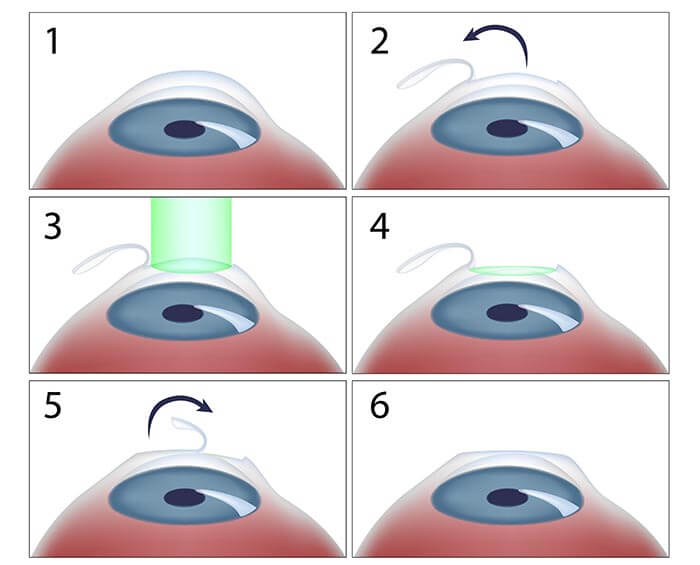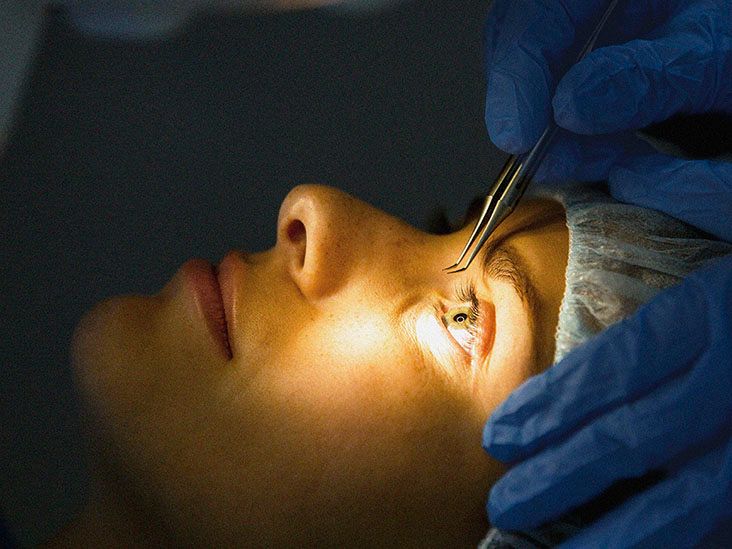An In-depth Consider the Different Eye Surgery Procedures Provided by Competent Eye Physicians
In the realm of ophthalmology, the landscape of eye surgery treatments provided by experienced eye medical professionals is as diverse as it is advanced. From the commonly acknowledged LASIK eye surgical procedure to the less familiar refractive lens exchange, each treatment holds the promise of vision improvement and enhancement.

LASIK Eye Surgical Treatment
The precision of LASIK eye surgery uses clients a transformative option for vision correction offered by competent eye physicians. LASIK, which means Laser-Assisted Sitting Keratomileusis, is a popular refractive surgery that reshapes the cornea to address usual vision troubles such as farsightedness, nearsightedness, and astigmatism. This outpatient procedure utilizes a very specialized laser to specifically eliminate microscopic amounts of cells from the cornea, enabling improved concentrating power and clearer vision without the demand for glasses or call lenses.
During the LASIK treatment, the eye cosmetic surgeon develops a thin flap on the cornea making use of a microkeratome or a femtosecond laser. With its high success rate and quick recovery time, LASIK eye surgical procedure has come to be a trusted approach for achieving long-term vision improvement (Tallahassee Eye Doctors).
PRK Treatment
A very reliable alternative to LASIK eye surgical procedure is the PRK procedure, recognized for its successful results in vision improvement. PRK, or Photorefractive Keratectomy, is a type of refractive surgical procedure that reshapes the cornea to remedy refractive mistakes such as farsightedness, astigmatism, and nearsightedness.
Throughout the PRK procedure, the outer layer of the cornea, called the epithelium, is eliminated to access the underlying corneal cells. Unlike LASIK, which develops a flap in the cornea, PRK directly reshapes the surface of the cornea. Best Eye Doctor In Tallahassee. This makes PRK a suitable choice for individuals with slim corneas or other corneal abnormalities that might stop them from undertaking LASIK
Following the removal of the epithelium, an excimer laser is used to shape the cornea to the preferred shape, remedying the refractive error. The epithelium regrows normally over a couple of days after the treatment. While the healing time for PRK is commonly longer compared to LASIK, many patients attain excellent visual end results with this treatment. PRK is a reliable and secure alternative for people looking for to reduce or eliminate their dependence on corrective lenses.
Cataract Surgical Procedure
Cataract surgical treatment is a typical procedure carried out to remove the cloudy lens of the eye and change it with a clear man-made lens. This surgical treatment is typically done on an outpatient basis and is highly effective in bring back vision. The over cast lens, which is referred to as a cataract, develops gradually and can create blurred vision, trouble seeing in the evening, and sensitivity to light.
Throughout the cataract surgical treatment procedure, the eye doctor makes a little incision in the eye and utilizes ultrasound technology to damage up the gloomy lens. The fragmented lens is then delicately suctioned out, and an artificial intraocular lens (IOL) is put in its area. This IOL assists to focus light onto the retina, enhancing vision.
Patients undertaking cataract surgical treatment are generally awake during the treatment, which normally lasts around 15-30 minutes. Recovery time is reasonably quick, with several individuals seeing enhanced vision within a couple of days. It is vital to follow post-operative treatment guidelines supplied by the visite site eye surgeon to make sure optimal healing and vision end results.
Refractive Lens Exchange
Refractive Lens Exchange, additionally recognized as lens substitute surgical treatment, is a procedure that includes eliminating the eye's natural lens and replacing it with an artificial lens to correct vision problems. By seeking advice from with a skilled eye doctor, patients can determine if they are appropriate candidates for this kind of surgery and discuss the possible benefits and risks associated with the treatment.
Corneal Transplant
Having actually resolved refractive errors via treatments like lens replacement surgical procedure, skilled eye medical professionals also use corneal transplants as an option for sure eye problems. A corneal transplant, also recognized as corneal grafting, includes replacing a harmed or diseased cornea with a healthy and balanced contributor cornea to boost vision. This treatment is generally advised for people with conditions such as keratoconus, corneal scarring, corneal abscess, or corneal thinning.
During a corneal transplant, the sensory surgeon gets rid of the central section of the damaged cornea and changes it with a contributor cornea that is thoroughly matched for shapes and size. There are various types of corneal transplants, including passing through keratoplasty, where the entire density of the cornea is replaced, and partial thickness official website transplants like Descemet's stripping computerized endothelial keratoplasty (DSAEK) or Descemet's membrane endothelial keratoplasty (DMEK), which change only the internal layers of the cornea.

Verdict

In the world of ophthalmology, the landscape of eye surgical procedure treatments offered by competent eye doctors is as diverse as it is advanced.The precision of LASIK eye surgical treatment uses individuals a transformative option for vision improvement given by skilled eye doctors.Refractive Lens Exchange, also known as lens replacement surgery, is a procedure that involves getting rid of the eye's all-natural lens and changing it with a man-made lens to remedy vision issues.Having dealt with go to this website refractive errors through procedures like lens replacement surgical procedure, knowledgeable eye medical professionals additionally use corneal transplants as an option for specific eye conditions.In conclusion, competent eye physicians offer a variety of eye surgical procedure treatments including LASIK, PRK, cataract surgical procedure, refractive lens exchange, and corneal transplant.